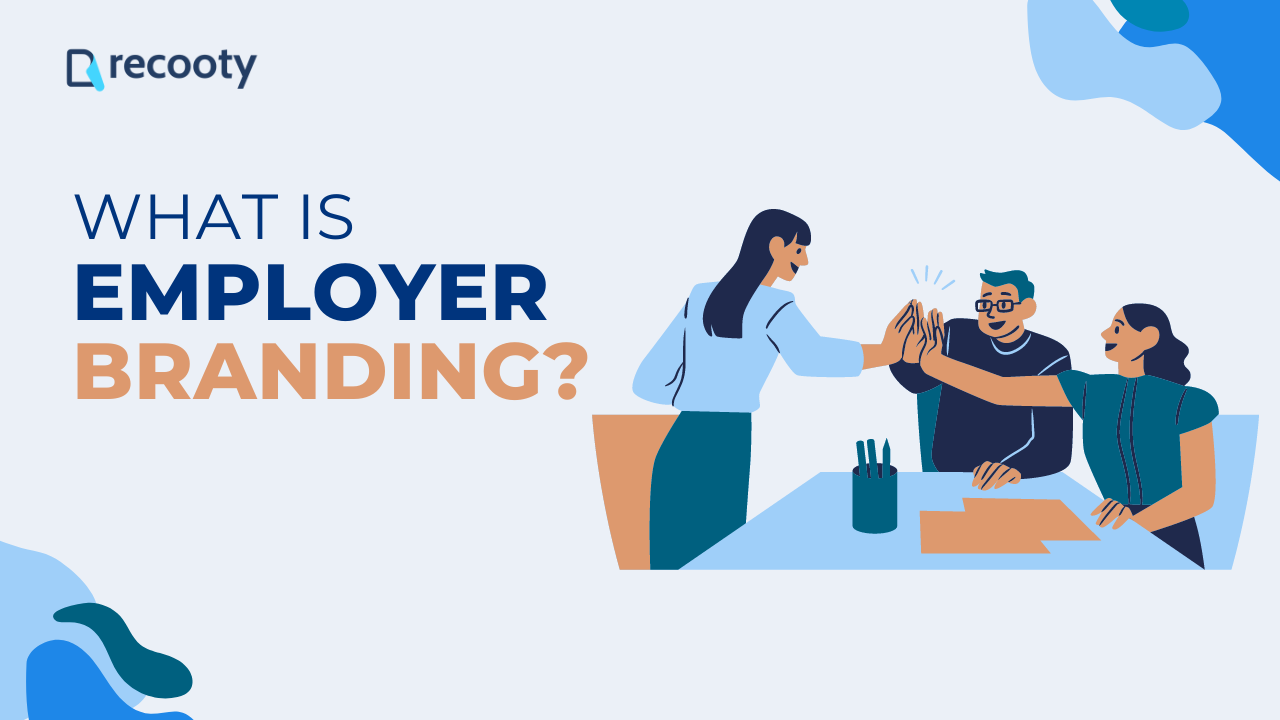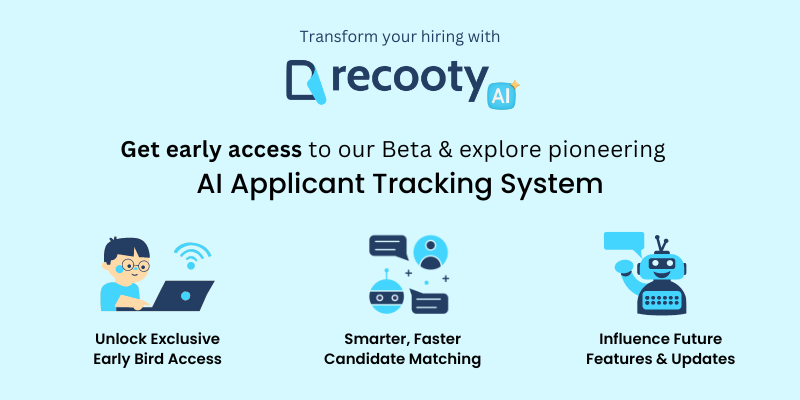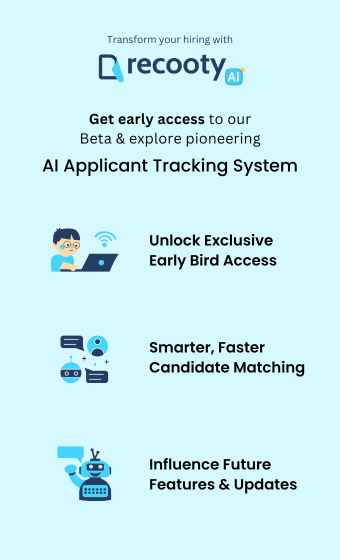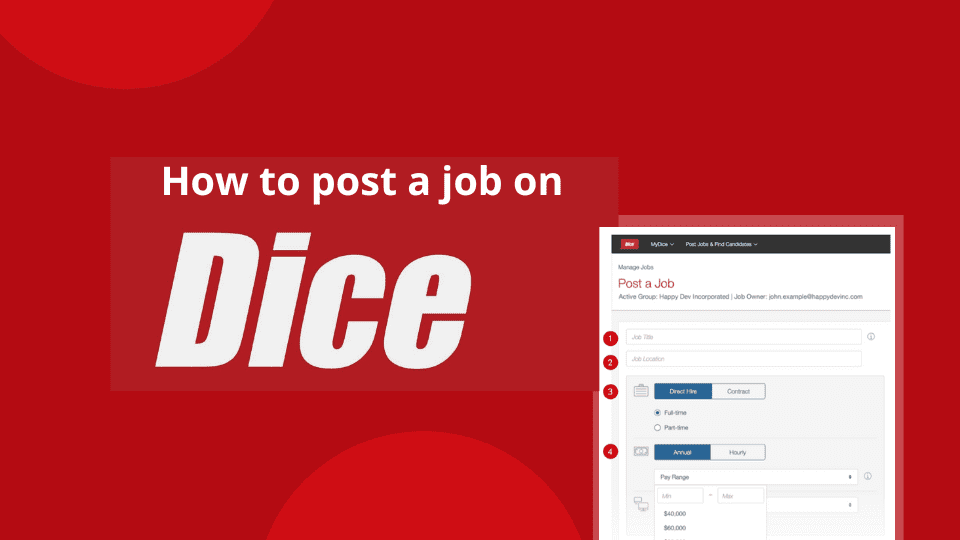
What is employer branding? What are the benefits of having a strong employer brand? How to build a strong employer brand? These questions are undoubtedly trendy among HR professionals. So, this article will help you understand what is employer branding, and its benefits, along with some tips. Read on to find more!
When job seekers start their hunt for a job, they always look for opportunities at companies that are a brand. 86% of workers would not apply for or continue to work for, a company that has a bad reputation. That’s a huge number!
Hiring great talents during these challenging times can be pretty complicated. During these times, when workplaces are being transformed into remote, it’s essential to have access to a bigger talent pool to bag the best-talented individuals.
We know that products and services are always branded toward their target audience. Similarly, as an employer, you should put in significant efforts to build a great employer brand to attract the right talent,
It’s a war for top talent out there. In today’s competitive market, considering the impacts of the pandemic as well, having a solid reputation is a must. Companies that are attracting the top talents are doing one thing right- having an impeccable employer brand. So, having a great employer brand is non-negotiable!
Having said that, we do understand that with employer branding being the trending topic in HR, figuring out what works for you might be a tedious process. So, this post will help you in understanding what is employer branding.
What Is Employer Branding?
Are you wondering what is employer branding or employer brand? Well, to put it simply, your employer brand is your company’s reputation as an employer. It is the idea of you as an employer, in job seekers’ minds. So, your employer brand is typically defined by the values and culture that you portray to your potential employees.
Whereas, employer branding is the process of how you build, maintain, and polish your employer brand. It includes the strategies and steps you take to market your company to job seekers and current employees.
Branding as a general term means targeting the consumers. However, employer branding specifically targets a company’s workforce and potential future employees. So, the better your employer branding is, the more top talent you will attract!
To gain a deeper understanding of Employer Branding and explore its intricacies, check out our latest podcast featuring James Ellis, an experienced expert in employer branding. He eloquently discusses branding concepts and delves into engaging topics directly related to employer branding.
What is an Employer Value Proposition (EVP)?
Employer Value Proposition or EVP delivers to candidates exactly what they want to know about your company. It carries what your company believes in and is striving toward, in simple terms, your mission, vision, and values.
EVP does the job of giving employees a convincing reason to work for you and telling them every single thing you can offer them in exchange for their skills and experience. If planned and designed well, EVP can benefit a company a lot. Additionally, it can be communicated to both future and existing employees.
Employee Value Proposition (EVP) allows you to:
- Attract and retain the best performers.
- Respark your employees’ interest in a detached workforce.
- Reduce your company’s hiring spend.
But you need to take care of what you communicate. Remember the messaging isn’t about the perks and benefits your company offers but it goes far beyond it.
It’s regarded as employee-centered. The reason? It’s simply because it is a proposition that has been explored, defined, and tested through current employees. Make sure that your organization’s benefits are well-established, well-defined, and approved by your existing workforce before you create your employer value proposition.
And in case you are considering a revamp, think about things that affect candidates’ decision to either accept or reject it which can be:
- Value and culture of your company
- Location and facilities of the company along with accessibility and convenience.
- Compensation (as a whole)
- Quality of work & employee recognition
- Career development
- Travel opportunities and client exposure
- Benefits like dental insurance and paid time off (PTO)
What Value Does a Strong Employer Brand Offer?
Without a doubt, it can prove to be pretty costly for your overall hiring efforts if you don’t invest in the employer brand. It can have a direct impact on cost-per-employee, your budget for HR, and everything else.
Companies with a favorable employer brand are likely to receive 50% more applications than other companies. Likewise, 95% of candidates find the reputation of a company as a major factor when exploring career opportunities.
It costs companies an average of $5000 to the companies when they fall short in investing in their employer branding efforts. A CR Magazine and Cielo Talent’s poll revealed that approx. 50% of employees said they are unwilling to work for a company with a negative reputation, even if they get a big raise in compensation.
On the contrary, when candidates are interested in a company, it can benefit the company a lot. With that said, recruiting costs can decrease dramatically by around 43%. In simple terms, stronger employer branding makes it easier for recruiters to introduce your company to qualified talent and bring them to the offer stage.
Why Employer Branding is Important?
After knowing briefly what is employer branding really, you might wonder how important it is. 75% of job seekers consider a company’s employer brand before even applying for a job. The truth is, we cannot overstate at all the importance of having a good employer brand. Here are some amazing benefits of having a great employer brand.
- Lower Cost-Per-hire
Not having a good employer brand can cost you a lot! But, with a great employer brand, you can reduce your cost-per-hire by a whopping rate of 50%! That’s right! Companies having a bad reputation always end up spending more on employee wages to compensate for it. For example, an HBR report suggests that a 10% salary raise would only tempt 28% of job seekers.
- Empowers You To Attract Top Talent
The bottom line is, that great talents want to work with companies with a good reputation. 94% of candidates are likely to apply for a job in a company with a good reputation. Today’s top talents prefer to work for a company that reflects their values. So, a great employer brand is key to attracting top talent!
- Boosts Employee Retention
A positive employer brand helps you retain employees in two ways. Firstly, you’ll be able to attract the top talents in the market whom you won’t be replacing soon. Secondly, it enables you to build a great bond with your existing workforce too, and keep them engaged.
- Helps In Boosting Employee Morale
Your employer brand is based on how you treat your employees. So, your efforts in establishing and maintaining a great employer brand will boost the morale of your employees. And high and positive employee morale simply means increased productivity.
- Builds Credibility Among Customers
A strong employer brand has a huge impact on customer acquisition and retention. It’s simple if you’re a good place to work, your employees will be productive which means that your products would be great too!
Who is responsible for employer branding?
Management of employer branding often depends upon the size of an organization. For instance, in smaller companies, the CEO or Talent/HR professional could be the ones who handle the messaging. On the other hand, in big organizations, the HR, Marketing, and Communications department are relied upon for creating their employer brand.
One thing that has changed from the past is that Employer Branding has shifted away from what your website says and how it says. It now entirely relies upon your employees; more specifically their experiences in your company. Your employees’ thoughts about your organization matter more to interested people than the words expressed by your leadership or recruitment marketing team.
In many ways including social media posts, job reviews, testimonials, and direct network conversations your existing, past, and surprisingly, your future employees have an influence on your company’s image. In case your company people are happy working for you, things can turn in your company’s favor evidently. But if the situation is reversed, then it might hurt your company’s image.
Irrespective of who manages branding, it’s important to note that the major chunk of your brand building is in the hands of your workforce. That’s why it’s imperative to note that your company’s work environment and culture should be healthier and happier side.
If your employees are in your favor, it’s more than enough.
Tips To Build An Employer Branding Strategy
Planning, building, and implementing a strong employer branding strategy isn’t easy. Here are some tips that can help you boost your employer branding efforts.
1. Conduct An Audit For Your Existing Employer Brand
It is very important to be aware of what your current reputation is among job seekers and current employees. So, the first step that you should take is to audit your existing employer brand.
You can send out internal surveys, read reviews on sites like Glassdoor, or even conduct polls on social media platforms like LinkedIn and Twitter. So, the ultimate goal should be to know the strengths and weaknesses of your employer brand.
2. Review Your Company’s Values And Processes
To create a strong employer brand, your strategy must be completely aligned with your company’s values, missions, and goals. Also, your recruitment process has a huge impact on your employer brand too.
You can start by identifying your business needs. This will help you to know what kind of talents are suitable for your needs to fulfill your company’s objectives. Make sure your brand is transparent to job seekers throughout the hiring process and as for feedback constantly.
3. Define An Employee Value Proposition (EVP)
An employee value proposition is the sum of total offerings that an organization offers to job seekers as-well-as current employees to elicit their best efforts. It is the complete set of tools and strategies that you implement to attract, engage and retain the top talents.
Make sure that your EVP is not only about compensation. Your main goal should be instilling passion within job seekers. So, you need to express your company’s positive values that bring a difference in the world.
4. Leverage Your Current Employees
What’s the best way to learn about a company’s culture and reputation than the current employees themselves? While applying for a job, your potential employees would love to hear from your current employees, that goes without saying.
So, you can interview your employees for testimonials and ask for their feedback. So, you can leverage your current workforce by encouraging them to spread the word about open positions at your company.
5. Have A Great Onboarding Process
The onboarding process is typically your first impression of a new hire. A negative onboarding experience can have a huge impact on your employer brand. So, it is important to make sure that the new hires have a positive onboarding experience.
So, to build a positive onboarding experience, make sure that employees are engaged throughout. Don’t leave any room for doubts. To help new hires get off to a good start, you must set expectations in terms of how things are going to work in their new jobs.
What are the most crucial components of Employer Branding?
Now if we talk about the main elements of Employer Branding, these are primarily 3; Employer Reputation, Employer Value Proposition, and Employer Reputation. Let’s explore them in depth below:
- Employer Reputation
In simple terms Employer Reputation is the way a company is perceived publicly by people including its own employees, candidates, and customers. The contributing factors that shape an employer reputation include the company’s actions, values, and culture itself.
A company’s reputation as an employer affects its overall ability to attract and retain top talent. A Glassdoor study revealed that – for 84% of job seekers, a company’s reputation is important when deciding on a job offer.
For building a positive employer brand, companies are required to focus on:
- Establishing a positive workplace environment.
- Giving fair and equal treatment to each company individual.
- Exercising transparent and open communication throughout the organization.
- Employee Value Proposition (EVP)
In short, Employee Value Proposition is a set of unique benefits and rewards that a company offers its employees in return for the skills, experience, and contribution they bring to the table.
If the EVP is solid, it enhances the chance for a company to attract and retain top talent, better the engagement of employees, and eventually give a boost to business performance. We’ve covered EVP in depth in the section (below/above) so please give it a quick read.
- Employee Experience
Employee experience means the interactions employees have with each other, systems, policies, and the physical as well as the virtual workplace. This includes the small details of everyday work and occasional events. A good employee experience lets companies attract and retain the best talent in this fiercely competitive talent market.
To build a positive experience for employees, companies can concentrate on creating a healthy work environment, offering ample growth opportunities, and treating all employees equally and fairly. Companies can also ask their employees for feedback on what they like and what can be improved so they can take appropriate measures to ensure the best employee experience.
What is the role of HR in Employer Branding?
The role of HRs is significant for any company in building recruiting processes and giving its very first impression to new and potential employees. They are the ones who are behind setting company policies that move side-by-side with its core values.
Their role in creating a robust employer brand is of utmost importance. This is how they do it:
- They create a captivating EVP that reflects what the company stands for and offers to its workforce.
- By leveraging strategic communication they define the company’s identity in recruiting, onboarding, continuous employee engagement, and various other touchpoints.
- HRs foster positive culture, transparency, and well-being, shaping an environment aligned with the company’s promise, attracting, retaining top talent, and enhancing brand image.
Step 1: Know your company better
It’s convenient to perfect your EVP when you can characterize your organization’s attributes that stand out from the crowd. You need to familiarize yourself with your company’s core mission, vision, and values including culture. In addition, understand what the end goals of your organization are and what kind of people you need to reach them.
Step 2: Conduct an employer brand audit
Knowing how your product or service is perceived by your present employees is as equally important as where these stand in the market. Perform internal as well as external research through applicant surveys, internet and social media searches, and/or companies that do reputation monitoring.
Figure out the things effective for your company so you can continue doing it and also what needs to be improved. Monitor both with regard to your company operations, morale, and most importantly the talent acquisition process so you can keep improving them.
Step 3: Outline your employee value proposition (EVP)
This part is required to bring your brand messaging into action. Craft an EVP that conveys your company values along with demonstrating the special things about working in your company. Your EVP should align with your customer brand and speak to your employees directly at the same time.
Step 4: Leverage recruitment marketing
Before you begin any type of brand messaging ensure to bring in the creativity of wordsmiths in your marketing or communications department. If that’s not possible, outsourcing the brand work to an agency is the best option.
You can adopt a few marketing strategies, for instance, you can start your marketing efforts by answering a few questions like – “To whom we’re trying to reach?” and “What are their expectations?”. This way you can create a brand that communicates directly to your target audience.
Step 5: Involve your employees in the process
To become a trusted employer, there’s no one better than your own company people. Candidates trust your employees’ words to understand the company’s work culture more than the words of the CEO.
Your employees turn every idea into reality including your mission, vision, and objectives. They are the ones shaping an excellent culture at your company. If they don’t participate you can’t create a brand that shines. Here are some ways you can include them:
Set the right message:
Use phrases/words that get incorporated into your enterprise lingo as a mode to define values and working experience at your company. Make the messaging simple, understandable, and unique.
Highlight your employees:
Candidates more often than not check other employee profiles after locating a new opportunity. That’s why you need to encourage your employees to keep their online profiles (on platforms like LinkedIn) updated so they appear up-to-date, polished, and eye-catching.
You can also ask them to share their stories using their experience as well as knowledge and emerge as subject-matter experts. This results in your employers bringing positive attention to your brand which is in turn beneficial for your recruitment as a whole.
Transform your employees into a social recruiting force:
You can ask your employees to:
Leave an honest but ideally not negative review about your company on company review sites like Glassdoor, job listing sites, and other relevant platforms where candidates visit to learn about the company.
Share job opportunities on their professional network. The reason – your employees have a 10 times larger network than your company’s.
To build a favorable employer brand, your employees will be assuming the role of unofficial recruiters and marketers. To support brand building you need to help your employees utilize social media networks like LinkedIn so they can represent themselves better and tell people about your company.
You can ask your social media manager to pass the guidelines about where, and what needs to be posted.
Get the onboarding experience on-point:
To turn your new team member into an efficient employee, the first 90 days play an important role. This is the chance to make an unforgettable impression by offering an effortless onboarding process.
To support this, pass on the tools, instructions, and orientation required to get their work up and running and help them thrive in the workplace.
Offer learning & development opportunities:
To save your recruitment costs, make your existing employees ready to promote them from within. And to make them ready, provide growth and professional development opportunities such as management and leadership training, special certifications, and an abundance of avenues for car.
Step 6: Craft attractive job descriptions
Job posting, which is usually the first point of contact with candidates, can affect the employer brand and is a perfect way of promoting your brand.
In order to make your brand shine amidst the masses, instead of using boring text like:
“Should exhibit strong communication abilities”
You can use something interesting like:
“You’re the fearless phone warrior who thrives on dialing, not waiting for emails. ‘Cold call’ is just another challenge you conquer with a grin.”
This way you can grab attention and show your company’s personality along with promoting your employer brand effectively. Just make sure you SEO-optimize your job descriptions and use creativity only where necessary.
4 Ps of Employer branding?
The 4 Ps of employer branding are:
Purpose: This refers to the organization’s mission and values, and how they are communicated to employees. Employees want to work for a company that aligns with their personal values and has a sense of purpose beyond just making a profit.
People: This refers to the organization’s culture and the people who work there. Employees want to work for a company where they feel valued, supported, and have opportunities for growth and development.
Process: This refers to the organization’s approach to recruiting, hiring, and onboarding employees. Employees want a transparent and fair hiring process that allows them to showcase their skills and experience.
Product: This refers to the organization’s products or services and how they impact society. Employees want to work for a company that creates meaningful and impactful products or services that they can be proud of.
Frequently asked questions
Employer branding refers to the image and reputation of a company as an employer. It involves creating a unique identity for the company that reflects its values, culture, and the overall employee experience. The goal of employer branding is to attract top talent and retain current employees by creating a positive perception of the company as an employer.
Employer branding refers to the image and reputation of a company as an employer. It is the way a company presents itself to potential employees and the public, including its values, culture, and benefits. Employer branding is important because it can influence a candidate’s decision to apply for a job or accept an offer
Employer branding in HR refers to the process of promoting an organization as an employer of choice to attract and retain top talent. It involves creating a positive image of the organization in the minds of potential candidates and employees by highlighting its culture, values, mission, and benefits.
The role of HR in employer branding is crucial. HR professionals are responsible for creating and implementing strategies to attract and retain top talent. They play a key role in promoting the organization as an employer of choice by highlighting its culture, values, mission, and benefits. HR professionals work closely with marketing and communications teams to create and disseminate messaging that reflects the organization’s brand and values.







